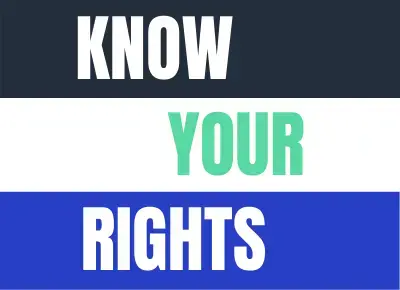Faculty Rights Tip: I Filed a Grievance That I No Longer Want to Pursue. Do I Need to Do Anything?
Faculty members file contractual grievances when we believe our rights as outlined in the Collective Bargaining Agreement – for example, with regard to job classification, benefits, working conditions, appointment, reappointment, tenure, promotion, reassignment, and more – may have been violated.

Article 10.4 states that, “A grievant eligible to grieve pursuant to provision 10.2 of this Article may file a Level I grievance with the President no later than forty-nine (49) days after the event giving rise to the grievance, or no later than forty-nine (49) days after the grievant knew or reasonably should have known of the event giving rise to the grievance.”
Given the confined (49 day) timeline regarding our right to file a grievance, faculty rights advocates often encourage faculty members to file a grievance in order to maintain its timeliness, even when the grievant is unsure about whether to do so, with the understanding that grievances may always be withdrawn by the grievant, while timelines exceeding 49 days can be cited by management as a reason for denying the grievance.
We have an extensive Representation Policy, which outlines the union’s representation obligations and associated procedures, including appeal rights. As the policy notes:
“The most effective way to enforce our contract is with a vigilant faculty rights program at the campus level that actively involves members. Each campus chapter shall designate a Faculty Rights Chair and is encouraged to maintain a Faculty Rights Committee to provide campus-level consultation and assistance in such matters as meet and confer sessions, grievances, discipline, anti-racism & social justice, academic freedom matters, etc. In other work settings, these workplace advocates might be called ‘shop stewards,’ as they work for the same employer and under the same conditions as those seeking union advocacy.”
One of the duties of the Faculty Rights Committee at each campus, in partnership with statewide CFA leaders and staff, is to “maintain permanent records of all representation requests including the name of the person making the request, the nature of the request, the date received and the disposition by the chapter.” As long as you have an active grievance, CFA keeps a record of it and works to move it through the process.
If you have filed a grievance and you no longer wish to pursue it, it is best to formally withdraw it. You can do so easily by contacting the Faculty Rights Chair at your campus CFA chapter or the CFA Field Representative or Chapter President on your campus and simply let them know, in writing (via email), that you wish to withdraw your grievance.
When faculty formally withdraw grievances we are no longer interested in pursuing, we make space for our colleagues (and their union advocates) who file new grievances to have their representation needs met. In this way, it is an act of solidarity that strengthens our contract enforcement work.
Want to learn more? Become active with your local CFA chapter Faculty Rights team.
- Browse the faculty contract here.
- See an archive of Faculty Rights Tips.
- If you have questions about a faculty rights tip or would like to suggest a tip, please write us with the subject line “Faculty Rights Tip.”
Join California Faculty Association
Join thousands of instructional faculty, librarians, counselors, and coaches to protect academic freedom, faculty rights, safe workplaces, higher education, student learning, and fight for racial and social justice.